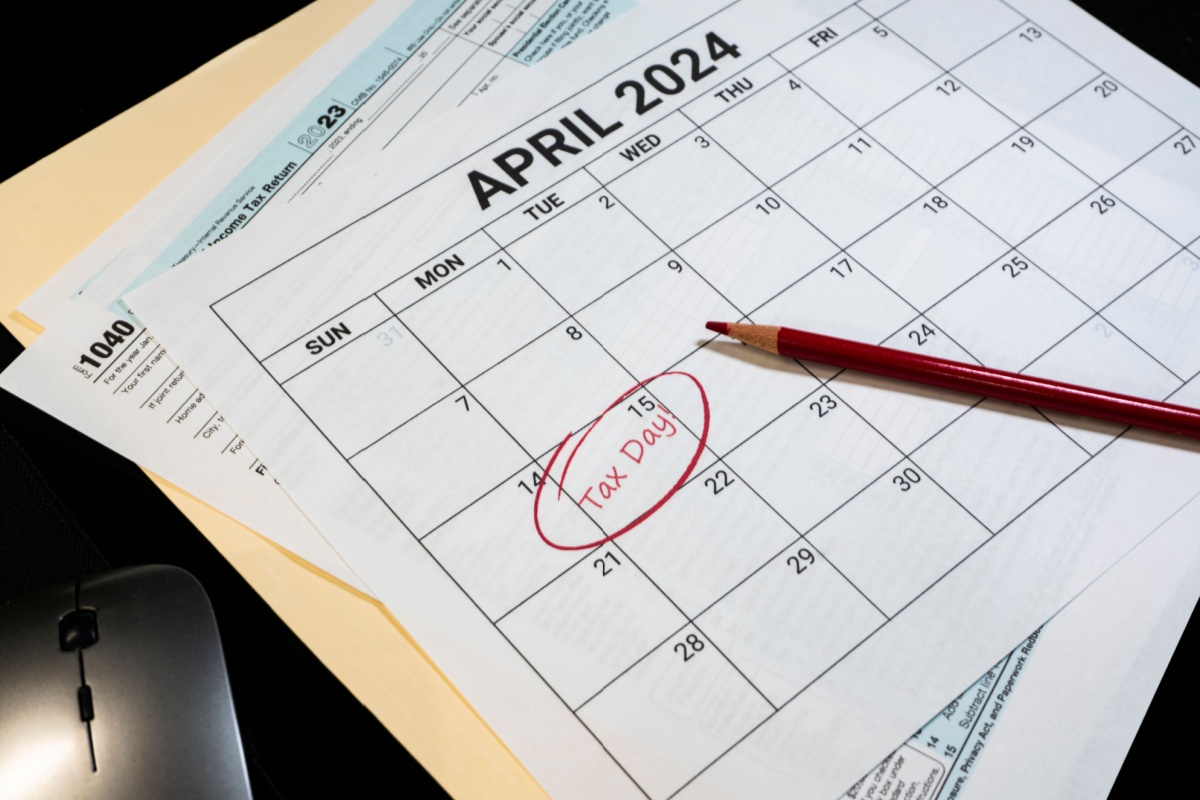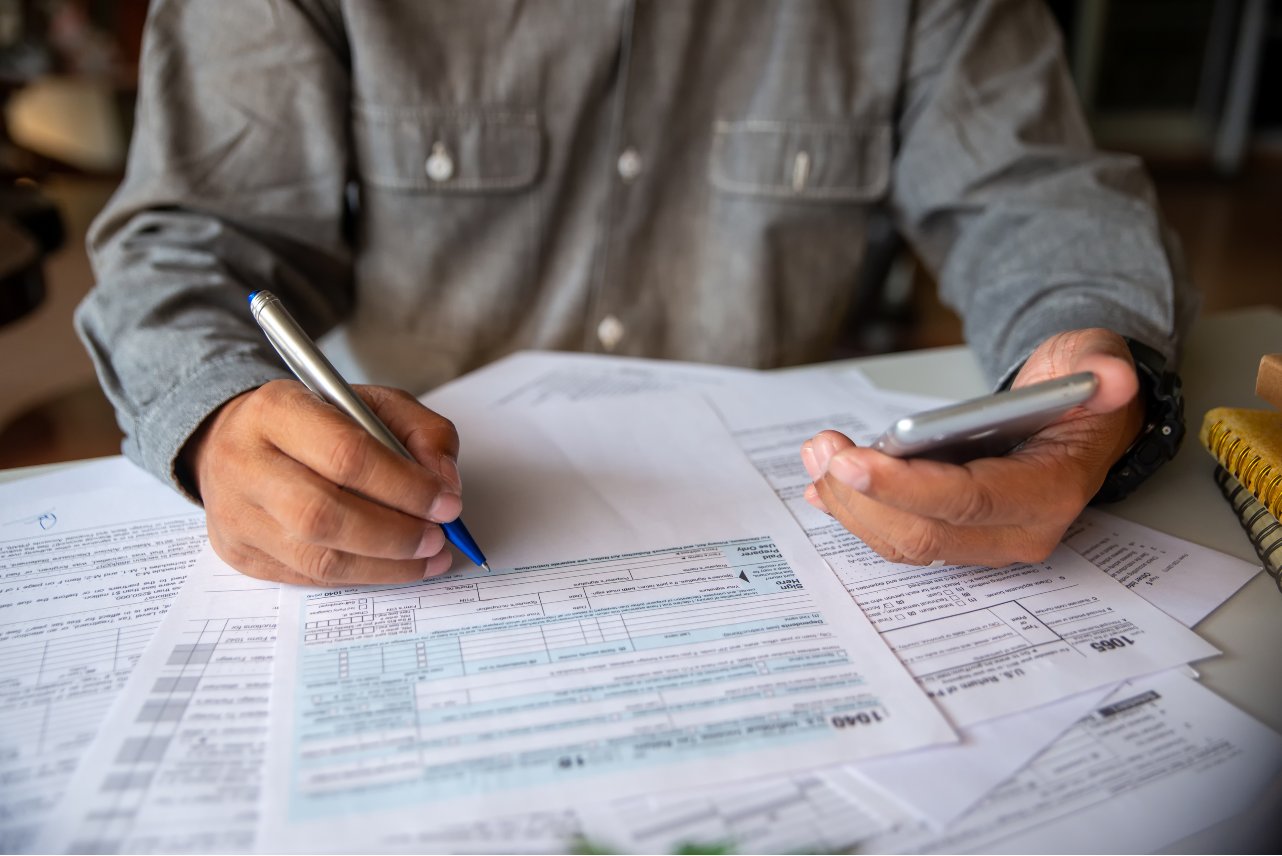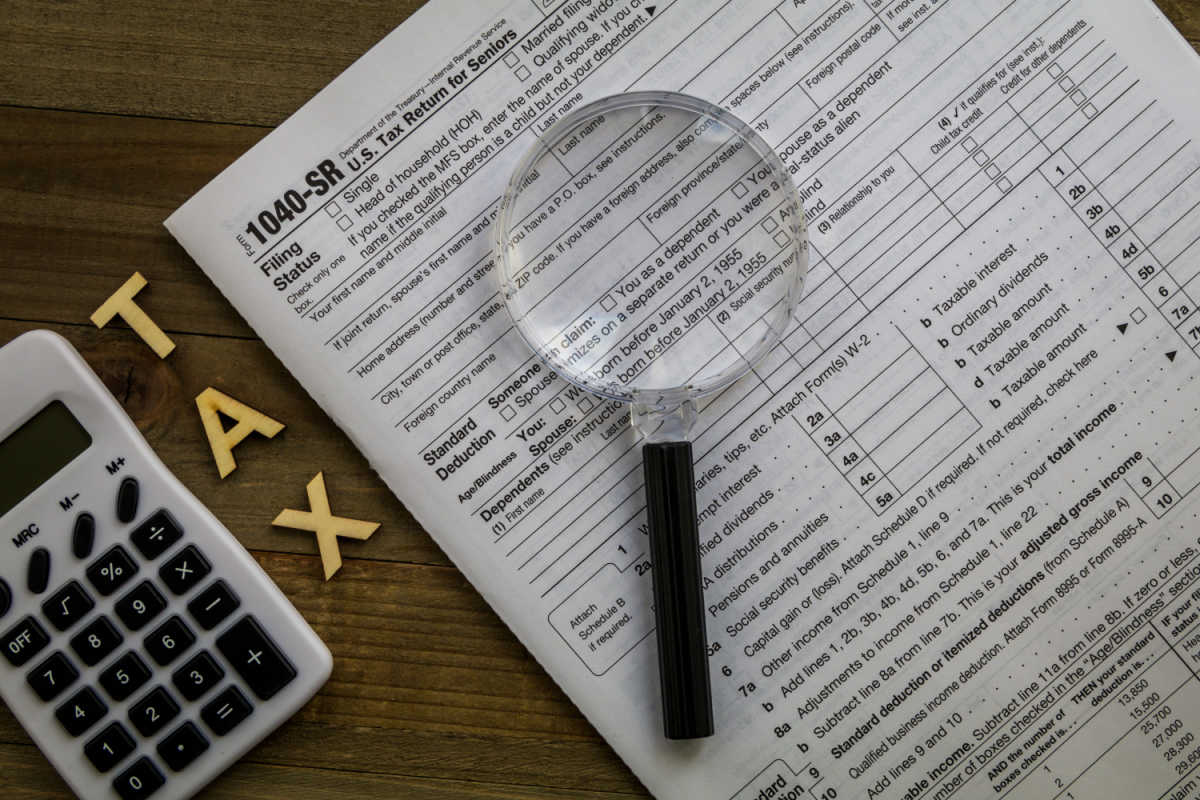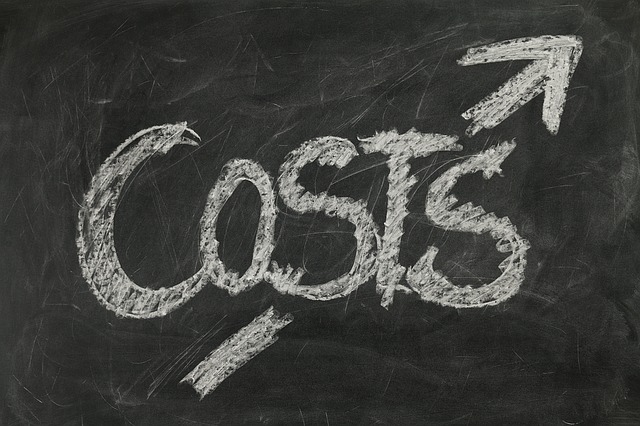8 Simple Ways to Make Tax Season Easier This Year
Tax season can often seem overwhelming, with its flurry of forms, receipts, and deadlines. However, it doesn't have to be a source of stress. Adopting a proactive approach can streamline the process and minimize any potential headaches.
What are some ways you can make tax season a little easier? Let's explore eight effective strategies to transform this annual chore into a more manageable task.
1. Save the Date for Tax Deadlines
One simple trick to make tax season less of a headache is to remember those important dates. The IRS has been accepting tax returns for the 2023 year since Jan. 29, 2024.
 For the 2024 tax season, you're actually filing taxes for the past year, 2023. Make sure to file by April 15, 2024, unless you've asked for more time. But remember, asking for more time to file doesn't mean more time to pay. Missing deadlines can lead to annoying fees, so it's best to stay on top of these dates.
For the 2024 tax season, you're actually filing taxes for the past year, 2023. Make sure to file by April 15, 2024, unless you've asked for more time. But remember, asking for more time to file doesn't mean more time to pay. Missing deadlines can lead to annoying fees, so it's best to stay on top of these dates.
When it comes to filing your taxes, you've got a few choices: the old-school way with pen and paper, using handy online software, or getting a pro to do it for you. The easiest way? Go with online tax software. It's like having a guide that walks you through each step, making sure you don't miss anything and helping you get it done right.
If you're worried about costs, check out the IRS Free File program if you made $79,000 or less in 2024. It's your ticket to free and reliable tax software. Not eligible? No worries, there are plenty of software options out there that can fit your budget and needs, with lots of them offering extra help if you need it.
Thinking about getting someone else to tackle your taxes because it's just too much? That's totally an option, especially if things are a bit complicated or you'd rather not deal with it. Nowadays, you don't even need to leave your house to work with a tax pro. You can send over your documents through a secure online portal and handle everything from the comfort of your living room.
Keeping these tips in mind can really make tax season a breeze. Whether you decide to DIY with some online help or hand it off to a pro, the key is to not wait until the last minute. A little planning goes a long way in making tax season feel like no big deal.
3. Understand How Your Taxes Work
One way to make tax season a bit easier is to understand how your taxes are calculated. The government sorts your taxable income into sections or tax brackets, and each section is taxed at a specific rate. You should know that you are not going to pay the tax rate for your bracket on your whole income, which is a common misunderstanding.
Diving deeper into how tax returns work can shine a light on this process. The U.S. has a progressive tax system, meaning the more you earn, the higher the tax rate you'll face on your income. This ensures that if you're earning less, you're looking at lower tax rates.
However, it's important to remember federal income taxes are just one slice of the overall tax picture. Most of us also have to consider state income taxes, which vary significantly based on where you live and your residency status. While some states adopt a progressive tax system similar to the federal setup, others apply a flat tax rate across the board. And for those living in states like Alaska and Wyoming, there's a bit of a tax break since these states don't levy a state income tax at all.
Understanding these basics can be a big help and is certainly one of the ways you can make tax season a little easier. Keeping this knowledge in your back pocket is a smart move, offering clarity on the best way to file taxes and ensuring you're equipped with the right tips for tax season.
4. Start Early and Organize Your Documents
Starting early is one of the most straightforward ways to make tax season easier. On the other hand, procrastination is a significant source of stress and errors when it comes to taxes. It can lead to falling behind and needing to take out a loan for taxes.
 Here’s how to get started:
Here’s how to get started:
Gather Tax Filing Documents
Gathering all necessary documents well before tax season kicks into full gear is a fundamental step that can significantly ease the stress and complexity of filing your taxes. This preparatory phase involves collecting a comprehensive range of documents that reflect your income, expenses, and potential deductions over the past year. Here's a closer look at what this entails and how it aligns with making tax season more manageable:
Key Documents to Collect
W-2 Forms: These are provided by your employer and detail your annual wages and the amount of taxes withheld from your paycheck. If you've worked for multiple employers throughout the year, ensure you have a W-2 form from each one.
1099 Forms: There are several types of 1099 forms, each serving a different purpose. For instance, 1099-MISC or 1099-NEC forms are for freelance or contract work, showing income you received outside of traditional employment. Meanwhile, 1099-DIV and 1099-INT forms report dividends and interest income from investments.
Investment Income Statements: These documents from your brokerage or investment accounts provide a detailed record of any capital gains or losses, which are essential for accurately reporting investment income.
Records of Deductions and Credits: This can include charitable donations, educational expenses, mortgage interest payments, and medical expenses. Keeping detailed records and receipts for these expenditures can help maximize your deductions and lower your taxable income.
Gathering documents early can prevent the frantic search for missing paperwork as the deadline approaches, ensuring that you have all the necessary information to file an accurate return.
Organize Documents
Once you gather your materials, sort them into key business and personal categories. Recommended classes include personal data, income statements, student or child deductions, medical spending, and self-employment updates.
Keep a careful record of key items such as charitable donations, education expenses, and financial reports that show your income.
Categorization will later simplify the tax filing process, putting every significant entry point directly at your fingertips, which invariably eases the real-time load during computer work.
Ensure you collect, review, and securely file all these important documents. A physical folder for hard copies or a digital folder for electronic records will work. This system should categorize documents by type, making it easier to reference them during the filing process.
Further Benefits of Early Organization
The benefits of early document organization extend beyond just stress reduction and include:
- Experian points out that "an organized approach to your tax documents can help you identify potential deductions and credits you might otherwise overlook."
- Having all your documents in order well before the deadline provides a buffer in case you need to request missing information or correct discrepancies.
- You may increase the potential for an expedited refund process. By submitting your tax return early, you position yourself at the front of the queue, potentially receiving your refund quicker than waiting until the deadline.
5. Utilize Technology and Tax Software
One of the best ways you can make tax season easier is to file taxes through the use of technology and tax software. These tools can simplify the tax filing process by guiding you through each step, ensuring accuracy, and identifying potential deductions you may not have considered.
Many software options can automatically import your financial information, reducing the risk of manual entry errors and making the entire process more efficient.
- Software Selection: Choose tax software that fits your needs, whether you're an individual or a small business owner.
Whether you're an individual with straightforward tax situations or a small business owner dealing with more complex financials, the market offers a variety of tax software tailored to different needs.
Forbes highlights the importance of choosing software that accommodates your current tax situation and grows with you, offering scalability for future needs. This includes looking for features such as easy import of last year's information, comprehensive coverage of tax deductions and credits, and responsive customer support.
The best way to file taxes is by using software that provides a user-friendly interface, error-checking mechanisms, and insightful tax-saving suggestions, ensuring you don't miss out on any potential benefits.
- E-filing: Take advantage of e-filing options for a quicker submission process and potentially faster refunds.
This electronic submission method is not only faster but also more secure than paper filing, reducing the risk of errors and ensuring quicker processing by the IRS.
E-filing can be very effective, as it often leads to faster refunds, with taxpayers receiving their refunds in as little as three weeks. Moreover, e-filing software typically provides confirmation once the IRS receives and accepts your tax return, giving you peace of mind that your submission has been successfully processed.
- Apps and Tools: Use budgeting apps and tools throughout the year to track expenses that could be deductible. An often-overlooked strategy for easing tax season is using budgeting apps and tools throughout the year. Experian suggests leveraging these technologies to track expenses, especially those that could be deductible.
By maintaining a year-round record of potentially deductible expenses, such as charitable donations, business expenses for freelancers, or even medical costs, you can ensure a more organized approach to tax season.
These apps help you keep track of receipts and categorize expenses, which, in turn, help you make informed decisions about spending and saving. When tax season arrives, you'll have a comprehensive, easily accessible record of deductions, which can significantly reduce both time and stress in filing your taxes.
6. Understand and Plan for Your Tax Obligations
Planning for any taxes you may owe or anticipating your refund can help you make informed financial decisions throughout the year. This foresight is especially beneficial if you are self-employed or have multiple income sources, as it allows for better financial planning and avoids surprises come tax time.
 Part of this planning might also involve preparing for unexpected financial needs, such as needing money for rent. If you find yourself in a situation where you need money to pay rent tomorrow, having a plan in place can be a lifesaver.
Part of this planning might also involve preparing for unexpected financial needs, such as needing money for rent. If you find yourself in a situation where you need money to pay rent tomorrow, having a plan in place can be a lifesaver.
Here are some tips for planning ahead:
- Estimate Your Tax Liability: Use online calculators or last year's return as a baseline to estimate your current year's tax liability. Those who are self-employed or have multiple income sources should pay extra attention to this tax filing tip, as tax withholdings may not automatically cover their total tax obligation.
- Set Aside Money for Taxes: Based on your estimation, start setting aside money in a separate savings account designated for taxes. This is one of the most practical tips for tax season, ensuring you have the funds ready when you need to pay your taxes, thereby avoiding the stress of finding a significant sum at the last minute.
- Adjust Your Withholdings: If you're employed, review and adjust your withholdings if necessary, especially if you had a major life change, such as marriage or having a child. This can help ensure you're not overpaying taxes throughout the year or facing a large bill during tax season.
7. Strategize for Deductions, Income, and Investments
To optimize your tax situation, adopt a strategic approach focused on deductions, income, and investments. Start with:
- Charitable Donations: Donating to registered charities supports good causes and can offer tax deductions. Ensure you keep receipts for all contributions, as they can directly reduce your taxable income.
- Retirement Accounts: Maximize contributions to retirement accounts like a 401(k), 401(a), or IRA. These contributions are often tax-deductible and grow tax-free until withdrawal, helping you build a nest egg while lowering your taxable income.
- Educational Expenses: Leverage tax credits for educational expenses. The American Opportunity Tax Credit (AOTC) and the Lifetime Learning Credit (LLC) can reduce your tax bill on a dollar-for-dollar basis for qualifying education expenses.
Understanding how different types of income and investments are taxed enables more informed decisions. For instance, long-term capital gains are taxed at lower rates than regular income, so holding investments longer can reduce taxes on profits.
8. Secure Your Financial Data
In today's digital age, the importance of securing your financial data cannot be overstated, especially during tax season when the risk of identity theft and fraud spikes. What are some ways you can make tax season a little easier and more secure? One critical step is ensuring the tax software you choose comes equipped with robust security features. However, safeguarding your financial information extends beyond just the tools you use; it involves a comprehensive approach to how you manage and share sensitive data online.
Here are several tax filing tips to enhance your data security and streamline your tax filing process:
- Select Tax Software with Top-notch Security: When exploring the best way to file taxes, prioritize tax software that offers strong encryption and two-factor authentication. This adds an extra layer of security, protecting your personal and financial information from unauthorized access.
- Be Wary of Phishing Scams: One of the most effective tips for tax season is to stay alert to phishing attempts. Fraudsters often ramp up their efforts to steal sensitive information during this time. If you receive unsolicited emails or calls claiming to be from the IRS or a tax software provider, proceed with caution. The IRS does not initiate contact with taxpayers via email, text messages, or social media to request personal or financial information.
- Use Secure Networks: When filing your taxes, ensure you're connected to a secure and private Wi-Fi network. Public Wi-Fi networks can be hotspots for data theft, making it easier for cybercriminals to intercept your information. This is a simple yet effective way to make tax season a little easier and safer.
- Protect Your Social Security Number: Only share it when absolutely necessary and with trusted entities. Be skeptical of any requests for this information and verify the legitimacy of the requestor before disclosing it.
By integrating these practices into your tax preparation routine, you can significantly enhance the security of your financial data. Implementing these strategies not only protects you from the threat of identity theft and fraud but also ensures a smoother and more stress-free tax filing experience. Remember, a little vigilance goes a long way in securing your financial well-being.
Sum Up
By following these tips for filing taxes, you can make tax season a less daunting time of year. From organizing your documents early to leveraging technology and understanding your tax obligations, these strategies can help streamline the tax filing process.





